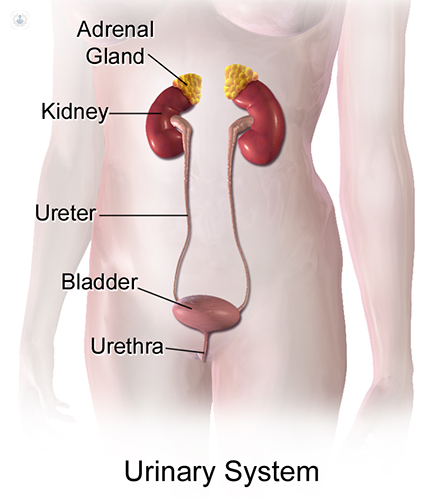Urologists are medical specialists who diagnose and treat conditions related to the urinary tract and male reproductive system. These healthcare professionals are trained to manage a wide range of disorders, both surgical and non-surgical, affecting organs such as the kidneys, bladder, ureters, urethra, prostate gland, and male genitalia.
Here are some of the conditions commonly treated by urologists:
1. Kidney Conditions:
- Kidney Stones: Hard deposits of minerals and salts that form within the kidneys.
- Kidney Infections: Infections that can affect the kidneys (pyelonephritis).
- Kidney Cancer: Malignant tumors originating in the kidney tissue.
2. Bladder Conditions:
- Bladder Stones: Similar to kidney stones but formed within the bladder.
- Bladder Cancer: Cancerous growths that develop in the bladder lining.
- Overactive Bladder: A condition characterized by frequent and urgent urination.
3. Prostate Conditions:
- Benign Prostatic Hyperplasia (BPH): Enlargement of the prostate gland, common in older men.
- Prostatitis: Inflammation of the prostate gland, often due to infection.
- Prostate Cancer: Cancer that develops in the prostate gland.
4. Male Reproductive System:
- Erectile Dysfunction: Difficulty achieving or maintaining an erection.
- Male Infertility: Issues related to sperm production or function.
- Testicular Conditions: Including cancer, torsion (twisting), or infections.
5. Urinary Tract Infections (UTIs):
- Cystitis: Inflammation of the bladder due to bacterial infection.
- Urethritis: Inflammation of the urethra, often caused by bacterial infection.
6. Urinary Incontinence:
- Stress Incontinence: Leakage of urine during activities that put pressure on the bladder.
- Urge Incontinence: Sudden, intense urge to urinate followed by involuntary loss of urine.
7. Other Conditions:
- Interstitial Cystitis: Chronic bladder condition causing bladder pain and discomfort.
- Neurogenic Bladder: Dysfunction of the bladder due to nerve damage.
- Pelvic Organ Prolapse: Descent of pelvic organs into the vaginal canal.
Diagnostic and Treatment Approaches:
Urologists employ various diagnostic tools and treatment methods tailored to each patient’s specific condition. These may include:
- Imaging Studies: Such as ultrasound, CT scans, and MRI to visualize urinary tract structures.
- Laboratory Tests: Including urinalysis, blood tests, and prostate-specific antigen (PSA) tests.
- Minimally Invasive Procedures: Such as cystoscopy, ureteroscopy, and laser lithotripsy for stone management.
- Surgical Interventions: Including open and laparoscopic surgeries for complex conditions like cancer or structural abnormalities.
Importance of Regular Urological Check-ups:
Routine check-ups with a urologist are essential, especially for individuals at risk of urinary tract or reproductive system disorders. Early detection and treatment can significantly improve outcomes and quality of life for patients affected by these conditions.
In conclusion, urologists play a critical role in diagnosing, managing, and treating a diverse array of urological and reproductive health issues. Their expertise spans from medical management to advanced surgical techniques, ensuring comprehensive care for patients of all ages and genders experiencing urological concerns.






Comments